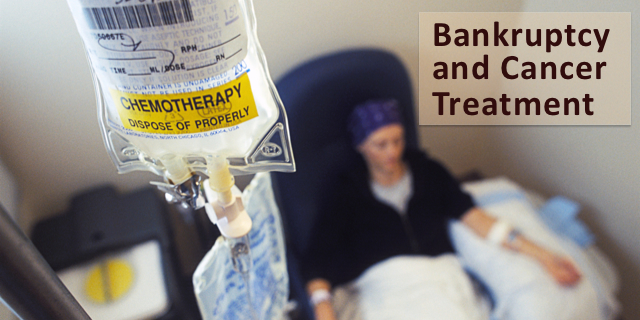 In the US, people buy health insurance to pay for their medical care. Often their employer, as a benefit, offers partially subsidized health insurance (if they are working full time). Yet, even if people buy the best coverage they can through their employer, they pay out-of-pocket costs. Some, who can’t afford that kind of chunk out of the weekly paycheck, purchase high deductible insurance with the hope that nothing catastrophic happens. Others, working part-time or freelance, have no insurance at all. The ACA has improved but not completely reduced this issue.
In the US, people buy health insurance to pay for their medical care. Often their employer, as a benefit, offers partially subsidized health insurance (if they are working full time). Yet, even if people buy the best coverage they can through their employer, they pay out-of-pocket costs. Some, who can’t afford that kind of chunk out of the weekly paycheck, purchase high deductible insurance with the hope that nothing catastrophic happens. Others, working part-time or freelance, have no insurance at all. The ACA has improved but not completely reduced this issue.
Why the discussion about health insurance? This has become important because of research shedding light on losses (beyond money) that may be associated with the financial burden of medical care for those who have cancer.
Side Effects of Treatment
Discussing side effects of medications, especially chemotherapy, is routine for many physicians. However, do physicians in the US discuss high costs? Not often, according to a New England Journal of Medicine article.
However, do physicians in the US discuss high costs? Not often, according to a New England Journal of Medicine article.
According to the authors, there are multiple reasons for this. One is societal norms—it’s taboo to talk about income and personal finances. Another is that it is very difficult for anyone to know how much medicine costs in the US and what the out-of-pocket costs will be for each individual. Insurance companies push costs back onto the insured through deductibles, co-payments and co-insurance and these tend to be complicated. And those costs are different for different pharmacies and other such places–like radiology centers–where patients receive services. So if a physician sends a patient to radiology for an X-ray, the physician doesn’t know if that location is covered by his patient’s insurance or not.
In fact, health literacy around health insurance is low among Americans for many reasons, not the least of which is trying to understand how much is covered and where it is covered. The math and logistics involved can be daunting.
This cost issue doesn’t only affect people with cancer…it is a problem for many chronic conditions. That being said, the recent research focused on cancer.
High Cost of Cancer Treatment
Of the $20.1 billion spent on cancer care, $1.3 billion is paid out of pocket from patients. When treatment begins, between 40 and 85% of people stop work, averaging between a month and a half and six months absence. Many do not return to work.
Bankruptcy and Cancer Treatment
Because of this, filing bankruptcy is a common option to take. In some amazing data mining and analytics of Washington State records, researchers looked at information from 1995 to 2009 on cancer patients and non cancer patients. They found that people with cancer had a rate of bankruptcy filings that was 2.65 times higher than people without cancer. They also found that younger people, especially younger women, were more likely to have to file for bankruptcy.
An article published in January 2016 in the Journal of Clinical Oncology builds on the data mining research just described. The researchers looked at the same records from the state of Washington. This time, they compared those people diagnosed with cancer who had to declare bankruptcy with people diagnosed with cancer who did not have to declare bankruptcy. The assumption is that people who file bankruptcy do so because of insolvency.
 A positive association was found between filing for bankruptcy and people dying earlier (earlier mortality) in people who had been diagnosed with breast, lung, colorectal or prostate cancer. When the researchers looked at the data and excluded people with advanced cancers, comparing only people with early stage cancers, they found the same association–those people with cancer who had to file for bankruptcy also showed higher levels of mortality.
A positive association was found between filing for bankruptcy and people dying earlier (earlier mortality) in people who had been diagnosed with breast, lung, colorectal or prostate cancer. When the researchers looked at the data and excluded people with advanced cancers, comparing only people with early stage cancers, they found the same association–those people with cancer who had to file for bankruptcy also showed higher levels of mortality.
Your Thoughts
The authors of the New England Journal of Medicine article believe that physicians should talk to their patients about the cost of the care they are getting. What do you think? Do you talk to your physician about the cost of your care? Do you ask for help with finances? Would you like your physician to talk openly about cost? Do you think that doctors need to be taught how to discuss finances with patients?






I think that the out of pocket and out of network expense is ridiculous as a health care professional going through 2 types of cancers. I believe there needs to be help for patients that worked hard and have insurance. We didn’t ask for a bad card to be given to us !!!!!
Tina, Thank you for your comment! You are right…losing everything, because of illness, should not be the reality in the US. Kathleen
I am the executive director of a regional cancer patient support organization called The Hope Chest for Women. We are located in Asheville NC and serve all of Western North Carolina.
I think that physicians, medical providers and office staff need support from patient navigators to help educate cancer patients in treatment about local and national organizations that can help with not only medical assistance but basic household expenses.
We need to allocate more money to cancer patient support not just cancer research. There are many great programs that offer support but patients do not know how to navigate these resources. There needs to be available resources that can be easily shared with all patients in crisis.
At The Hope Chest for Women 40% of all the patients we help have never needed or asked for assistance. These women are cashing retirement, clearing out savings and losing their homes to try to cover the cost of care. Most need 1-6 months of medical leave from work for treatment. This loss of income is devastating to patients because the average person does not have 1-6 months of household expenses in savings. It is not surprising that more people in crisis are overwhelmed by stress, declaring bankruptcy and showing higher levels of mortality.
We need to do a better job supporting patients in crisis and keeping resources available to make treatment a priority while easing the financial burden of it.
Sara, Thank you so much for responding and providing this incredible comment. You are right! There is a desperate need for not only medical assistance by also support for basics. Having people clear out their savings, losing their homes and cashing retirement–these are the realities for many with chronic conditions in the US. Kathleen
“We need to allocate more money to cancer patient support not just cancer research.”
I totally agree. I have a grade 2/3 brain tumor. After 4 years of chemo, my medical debts are overwhelming. I am only 35. I can accept the fact that the cost of prescriptions can fluctuate, but the cost of a procedure that is critical to the treatment of any type of cancer (such as an MRI or chemotherapy) should not prevent patients from being able to receive treatment. The Arizona Cancer Center was bought by Banner Healthcare last year. I received a phone call from the billing department in January of this year, informing me that I had to come up with the total cost of my chemotherapy treatment. I was on the phone for over an hour waiting to speak to a supervisor. A month later I got a call from billing, telling me that I had to pay for the entirety of my MRI before they would let me get my imaging done. I cancelled my appointment and shopped around to find the best price at an independent MRI facility. Patients should not have to go bargain shopping for medical care.
Now that I am finally finished with chemotherapy, I will be declaring bankruptcy. This will obviously have spillover effects. It’s not like I maxed out credit cards buying clothes or other frivolities. Medical care should not be a corporate transaction.
Serena, thank you for sharing your story and informing this discussion with your experiences. It is very important that people hear from those who are affected. I am so sorry that you are going through this. Kathleen
I am broke I can not even get decent treatment for my MDS
Maria, The problem of bankruptcy and financial turmoil, though focused on cancer in this post, is a situation facing all people with chronic conditions. Thank you for bringing this to everyone’s attention. Kathleen
The Bankruptcy situation is not just confined to the U.S.A. Whoever thinks that Canadian Medicare pays all costs of treatment is mistaken. I know of a young man with brain cancer. The Treatment costs were atrociously high here and the parents had to resort to fundraising to afford treatment. The young man was just 20 years old. It has been the generous hand of the public that has paid for that young man’s lifesaving treatment – not the Canadian medical system sadly.
Stephanie, Thank you for sharing this story. Many do not know or understand the true plight of people, around the world, trying to get lifesaving treatment. It is so important to bring this to light. Kathleen
Kathleen- thanks for this great post! It is so important that we develop processes for discussion with patients & families! That we establish a culture of transparency. Even before ‘financial toxicity’ was a thing…I long held the observation that cancer patients of moderate income who have health coverage, were being ‘co-payed’ to death. Some of the hardest hit are our small business owners…the economic backbone of many of our communities.
No one has mentioned the obscene cost of some of the treatments. Immnotherapy can cost up to a quarter million dollars for a year’s treatments although insurance companies do not pay that amount. Only people with no insurance or insufficient insurance have to pay that much.
My personal opinion is that every insurance policy should have a mandatory rider for catastrophic illness.
The fraud is in the payment/reimbursement system. A $42,300 hospital bill for one night stay and routine (30 min) and unremarkable surgery is reimbursed by combined Medicare plus supplement a grand total (get this!) a bit under $3,900. Less than 10%.
The surgeon bills $5,000 and is reimbursed $1,200.
The uninsured (and in some cases the underinsured and/or out-of-network) and private pay are, in effect, subsidizing those of us who have insurance, as the providers cannot run their businesses at such low reimbursement rates. They must make it up on the backs of others. This is why medical care – particularly hospital – is so ridiculously expensive. Billings are not based on cost, as with most businesses, but on what’s needed to play catch up.